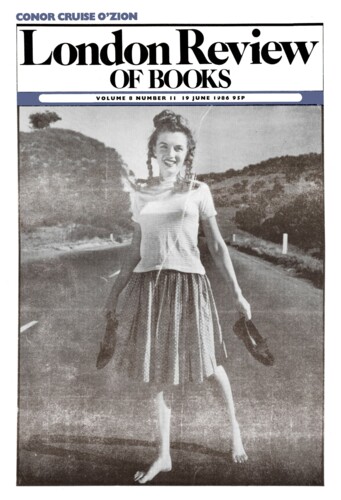Wonderwoman
Carolyn Steedman, 4 December 1986
This is the year of the collected essays of many women. Six years of Ann Oakley’s lectures and occasional writings on medical sociology have recently been published, together with some of her poems, in Telling the Truth about Jerusalem, Elizabeth Wilson has recently produced Hidden Agendas, and Cora Kaplan’s collection from a ten-year period has just appeared in Sea Changes. Germaine Greer’s Madwoman’s Underclothes, designed, according to the dust-jacket, to demonstrate ‘what a force in our cultural life she is’, covers a much longer stretch of past time, from 1968 to 1985, starting with a piece from Oz and ending with a report on food aid in Ethiopia from the Listener of two autumns ago. The Sunday Times, Esquire, Spare Rib and Playboy lie in between. We are meant indeed to understand that the road has been a long one, the times always obdurate and absurd in their different ways, but – the stated premise of this collection – that the seeing eye has always been informed by a central vision, and the story told essentially the same one.’


